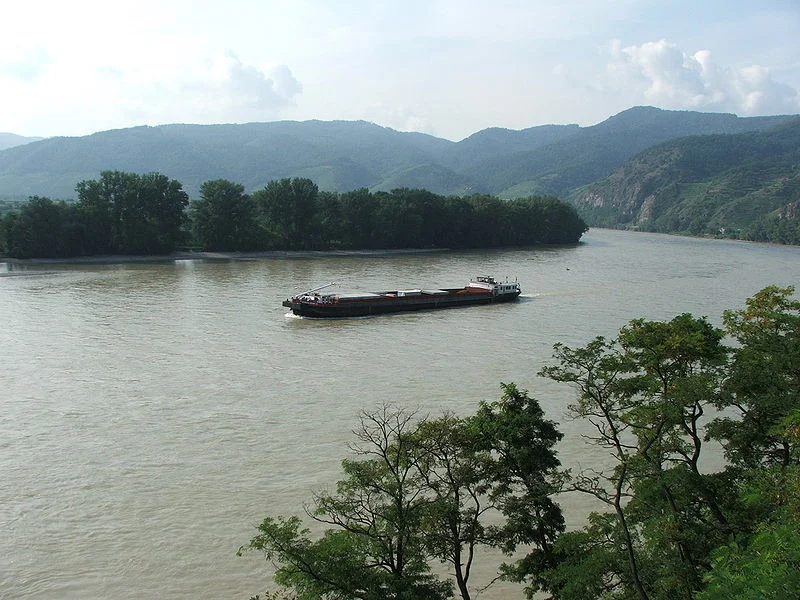Extraordinary or Expected? Evaluating the Results of the Khmer Rouge Tribunal Twenty Years Later
By: Kelly McClintock.
The Cambodian government, led by Hun Sen who has ruled as Prime Minister since 1997, has been met international criticism and condemnation after conclusion of the Kkmer Rouge Tribunal. People are talking about Cambodia again, and it’s not just the indie-film lovers and critics. Can the success or failure of an international criminal war tribunal be measured as a quantifiable result? What about qualitative results?
Read More
A Human Rights Achievement for Muslim Women in India
By: Lauren Kissel.
The Supreme Court of India recently outlawed the longstanding practice of allowing Muslim men to instantly divorce their wives through “triple talaq,” or uttering the word “talaq,” meaning “divorce,” three times in a row. The Court ruled this practice unconstitutional and against the tenents of the Muslim faith. With this ruling, India joins many other counties that have outlawed this Muslim practice and in turn strengthens the rights of Muslim women.
Image credit: by , available at https://commons.wikimedia.org/wiki/File:A_building_in_Chennai.JPG
Read More
Palestinian Residency Rights: A Movement Toward the End of Statelessness in East Jerusalem?
By: Inessa Wurscher.
Since 1967, native-born Palestinians in East Jerusalem have struggled to acquire and maintain legal residency. This struggle has left many Palestinians with a tenuous status that may be revoked at any time, leaving them stateless and without a legal remedy. Now, a recent Israeli Supreme Court decision ordering Israel to reinstate a Palestinian man’s residency may mark the beginning of new protections for East Jerusalemites.
Read More
A Mammoth of a Problem—Effectively Regulating the Russian Mammoth Tusk Ivory Trade
By: Evan Bonnstetter.
While mammoth tusks have been collected from Russia for decades now, new techniques pose grave consequences for the environment. Attempts by local authorities to regulate the removal of tusks have been unsuccessful, and while the federal government possesses primary authority it has left this practice largely unregulated. While the removal and sale of mammoth tusks promises great financial reward, regulation is necessary to mitigate the negative effects. The federal government must either regulate this area itself, or enable local authorities to do so.
Image credit: Midmar - Miskolc TDM available at https://commons.wikimedia.org/wiki/File:Mocsarciprus_04.JPG
Read More
Reforming the Japanese Health Care System
By: Angela Gamalski.
Japanese law requires the government operate its national heatlh care system in a sound manner. However, economists and medical professionals have argued that the Japanese health care system is failing, as the current insurance system will not support Japan's projected demographics. Now is the time for Prime Minister Shinzo Abe to act on campaign promises and implement change.
Image credit: Japan Health Care College, by 禁樹なずな - available on Wikimedia.
Read More
New Vietnamese Casino Law May Offer New Opportunities for Local Vietnamese and Foreign Investors, But Will Vietnam Miss Out on the Jackpot?
By Jeff Caviston.
Vietnam, a country that has become a welcoming place for foreign investors, recently promulgated new laws that may lead to an influx of investment by casino businesses. However, uncertainty remains because the reforms are tentatively temporary, investors have been let down by the Vietnamese government in the past, and other opportunities to gamble exist nearby.
Image credit: Charles Haynes, available by Creative Commons 2.0 license
Read More
The Stolen Origin of Humanity
By: Matthew Thran.
Western nations have stolen many cultural artifacts through conquest and colonization. There has been an international effort to return stolen cultural artifacts which were stolen after 1970 but older cultural artifacts have been zealously guarded by the colonizing nations. The Louvre, the Smithsonian, and the British Museum have all stockpiled cultural artifacts belonging to nations like Egypt, Greece, and Mexico which they refuse to reparation to their country of origin. An international treaty discussing cultural repatriation of items obtained prior to 1970 is required to rectify the problem.
Image: Canadian Museum of Civilization, by Wladyslaw/Wikimedia
Read More
Extreme “War on Drugs” in Indonesia is Costing Lives
By: Amanda Carmichael.
The “War on Drugs” in Indonesia has been evolving over the last couple of years, yet the problems related to drugs in this country remain. The President of Indonesia implemented a new plan to deal with drugs in early 2016 and the country has been executing both citizens and non citizens for drug use, possession, and trafficking. The country has executed 18 persons last year and plans to execute 30 more this year alone, all for drug related offenses. Indonesia should consider another method of addressing its extreme drug issues.
Image credit: Davidelit/Public Domain/Wikimedia
Read More
How North Korea's Use of Nuclear Weapons Violates the Most Fundamental International Rule
.By: Marlene Zieah.
North Korea, and other nuclear weapon states may be in violation of international law if a prohibition on such use is given jus cogens status - i.e., is deemed a preemptory norm. A ban on nuclear weapons satisfies the jus cogens test because their use is immoral, it disrupts international order, and no nation has used them in combat for seventy-two years.
Image attribution: by Kok Leng Yeo from Singapore , available at https://commons.wikimedia.org/wiki/File:Pyongyang_Arch_of_Triumph.jpg
Read More
Kenyan Supreme Court: Election Fraud Stops Now
By: Max Mittleman.
Concerns over election fraud and hacking have become a world-wide concern. Kenya joins many other countries left questioning the authenticity of election results, with this issue being reviewed by that nation's Supreme Court. Has Kenyan democracy has been given a new jolt of energy which may provide for future election legitimacy?
Image attribution: By JimSlim, information available at https://commons.wikimedia.org/wiki/File:25332612.nairoboi013.JPG.
Read More
Hydropeaking in Austria
By: Sarah Faris.
Fourteen nations have contracted to be regulated by an EU regulatory framework for the purpose of protecting the water quality in the Danube River Basin. Austria is a member of this agreement and has been a leader in incorporating this framework into national regulation. However, Austria uses the hydropeaking process to create hydroelectricity, which has been shown to have a negative impact on certain river species. Although full effects are still unknown, there may be a way to get the best of both worlds: protect the species as well as maintain the benefits of hydroelectricity.
Read More
Country at War: No One can Agree What to do With Australia’s Trees
By: Andrew Kemmer.
In New South Wales, Australia, new legislation recently came into effect that changed the regulations for vegetation-clearing. Farmers have long believed they had too little say over what they could do with their land. New legislation could give farmers much more latitude to clear vegetation on their land, but they’re unfinished, hard to understand, and have environmentalists in an uproar.
Read More
Restriction Of Fertility Treatments In China: Law Against Human Rights?
By: Mollie M. McSweeney.
Single, unmarried women, who desire to have children later in life, are restricted by the Chinese government from seeking reproductive services such as freezing their eggs. Further, if a woman has a child out of wedlock, the child and the woman become social outcasts who are forced to pay fees and prohibited from receiving health and education services. This article urges the Chinese government to reflect the values of a modern society by allowing all women the freedom to reproduce.
Read More
Lukashenko’s Monopoly: Media Freedoms In The “Last Dictatorship In Europe” In The Internet Age
By: Michael T. Moran.
Since 1994, the Belarusian government—headed by President Alexander Lukashenko—has systematically repressed viable political opposition. Lukashenko has consolidated political power by curbing media freedoms and the dissemination of information deemed detrimental to the regime. However, the inception of the Internet has provided alternative channels of information collection, which in turn has emboldened Belarusian citizens to question and confront the status quo. In early 2017, however, planned peaceful protests throughout Belarusian urban centers opposing the Lukashenko regime were met with violent backlash from police forces.
Read More
Venezuela’s Controversial Constitution Rewrite
By: Alexandra Stafford.
Is it possible to rewrite a Constitution? Is it possible to do so avoiding volatile public upheaval? Venezuela is facing these issues after the announcement by President Nicolas Madura to rewrite the Venezuelan Constitution.
Image attribution: By Jonathan Alvarez C (Own work) [CC BY-SA 3.0 (https://creativecommons.org/licenses/by-sa/3.0)], via Wikimedia Commons
Read More
















